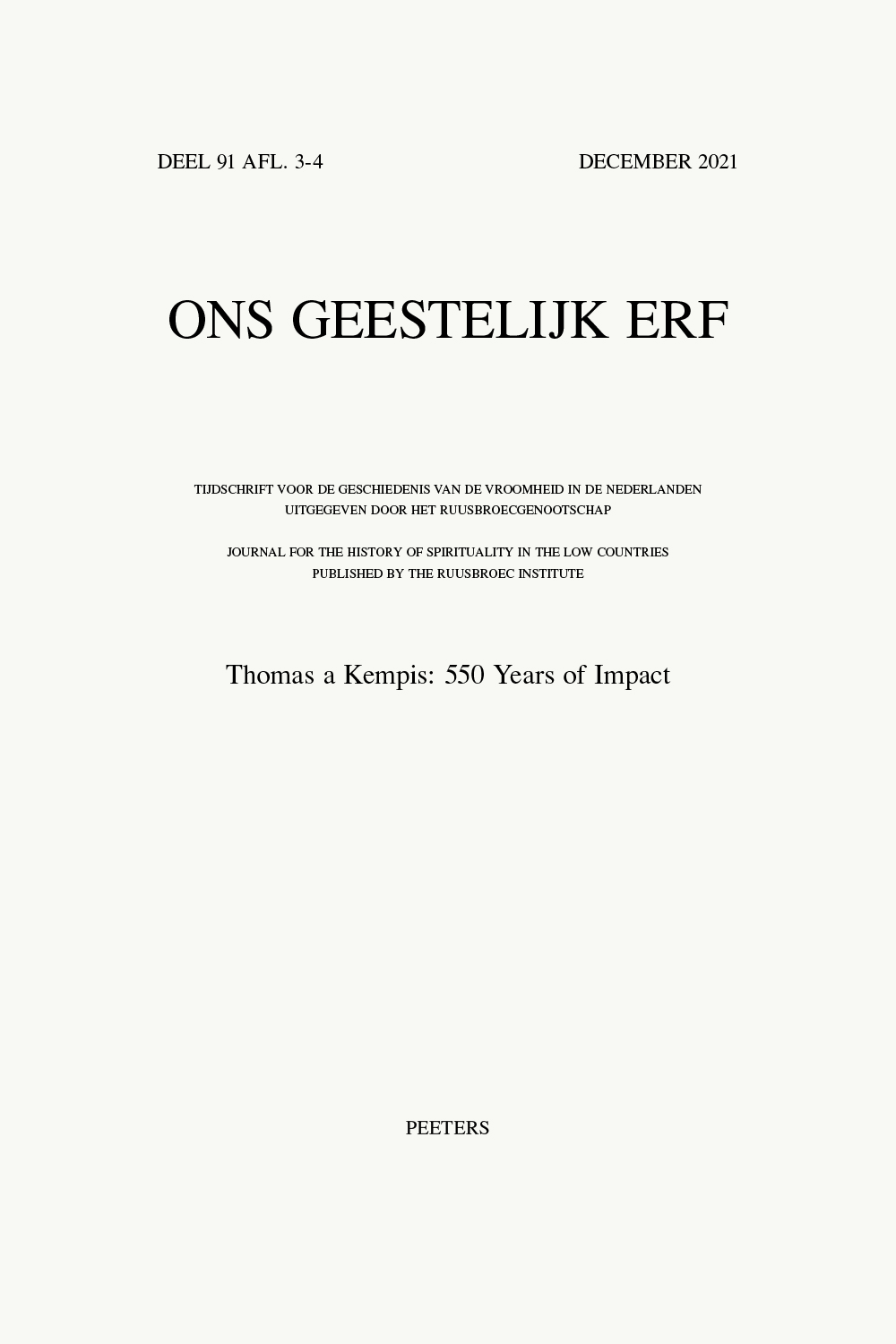 previous article in this issue previous article in this issue | next article in this issue  |

Preview first page |
Document Details : Title: John Evangelist of 's-Hertogenbosch's Divisio animae ac spiritus Author(s): DE PRETER, Anton Journal: Ons Geestelijk Erf Volume: 90 Issue: 1-2 Date: 2019-2020 Pages: 63-103 DOI: 10.2143/OGE.90.1.3288400 Abstract : John Evangelist of ’s-Hertogenbosch (1588-1635) can be considered an important witness of the spiritual, religious and theological developments in the Low Countries during the first decades of the seventeenth century. This Capuchin friar and mystic lived in a context of Reformation, of mystical theology and ecclesial and religious polemics. After he joined the Capuchins in 1613, he demonstrated great dedication and spiritual competence, which is also evident from his promotion to responsibilities within the Capuchin Order at a very young age. He was involved for almost his entire life in the education of novices and younger Capuchins. But he enjoyed a similar fame outside the Capuchin Order, which is evident, inter alia, from the publication of the Divisio animae ac spiritus, one of his writings. The Divisio deals with the mystical-theological issue of union with God and describes a path of mystical interiorization similar to that in his main writing, The Kingdom of God in the Soul, but in a more concise manner, with different emphases and, as it was written in Latin, for a more learned public. It was not only written at the request of, but also first published by the more famous Libertus Fromondus (1587-1653), a main protagonist of the Jansenist controversy, who included the Divisio in his Commentary on the Song of Songs together with some of his own notes on the Divisio. This essay aims to introduce John Evangelist of ’s-Hertogenbosch and his Divisio animae ac spiritus, as well as to discuss their relationship and intertwining with the context of Reformation and the medieval mystical tradition. |
|


